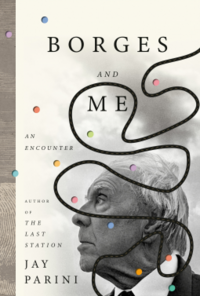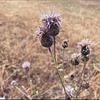Take a photo of a barcode or cover
funny
hopeful
inspiring
lighthearted
reflective
medium-paced
medium-paced
Bit the worst book, well written, but author is not sympathetic and was full of himself (in a very literary, that-is-the-point way). I try not to read straight white men and indeed, I felt like the author didn’t have anything valuable to say. Perhaps I am too young for this book, it was recommended by someone over 50,
adventurous
funny
inspiring
reflective
fast-paced
"It would be important, he said, for me to name everything we saw, to rephrase each experience, making it permanent. "Description is revelation", he said. He would pay our expenses, but this naming aloud would be my contribution to the trip. "Nothing exists," he said, "until it has found its way into language".
This is the story of the author's serendipitous trip with Jorge Luis Borges through the Scottish Highlands during the 1970's where he was a PhD student. Borges, blind and particularly frail at the time the story happens, takes Parini through a voyage of what it means to narrate, letting the young author into Borges' magical brain.
This book is funny and absolutely charming; I read this incredibly fast. I would recommend this book to anyone that loves fiction, even if this is a fictionalized autobiography. I haven't read Borges since I was a teen, and now I'm craving to go back into it.
adventurous
funny
lighthearted
reflective
medium-paced
Borges and I is classified as a memoir or non-fiction. I thought it was a book of non-fiction, a memoir or travel diary of sorts. So throughout the book I felt puzzled by Borges as a character, by Jay Parini’s own depiction of himself but mostly how did so many of Borges’ stories were woven into the text. The way that the plot advanced, seemed too tidy to be true. The author explains in his foreword, this is a work of auto-fiction. Now it all adds up. I must confess, had I known I would have never picked it up. What troubles we about this über-white depiction of a trip with Borges through the Scottish Highlands is:
(1) Borges feels very much like a character, and one drawn upon stereotypes of artistic geniuses. He is quirky, extravagant and self-centered. Childlike but wise in a way that only artists are meant to be.
(2) Borges is exoticized in a typical way that Latinxs tend to be portrayed, but made “acceptable” by being racially white, of Nordic or European origins. As a Latinx, this felt familiar and very troublesome.
(3) The author proudly shrouds himself with white privilege. He has never read Borges, all authors mentioned are white, the ideal feminine beauty is very Nordic, and he goes on to say that slavery would have disappeared by itself even if the Civil War had never happened. Worse, that the reconstruction was even worse than slavery. Poison usually uttered by white people who had no idea what slavery really is or means. It made me cringe, to be honest.
(4) Though he tries to give its women characters a feminist, independent twists, they are still only sexual-props and his attitude towards them is terribly condescending. He marvels that they know history, read poems or have heard about Borges. Terrible and uncomfortable.
But don’t let me disuade you. It’s not all bad. It is a very entertaining book, though pedantic as Jay Parini is himself as a character. Borges is a very fun character. Borges’ genius and influence does shine through the book and it does serve as a good introduction to Borges’ Ficciones. Finally, the idea of the book is a creative rework of Borges’ short story “Borges and I”, published in his collection “The Maker” (“El Hacedor”). The title, The Maker derives from the Scots word “makar”, which I think it’s pretty clever given that Borges is a character and Scotland is the background. I would recommend it if you plan on reading Borges and would like a little background on his stories. But never loose sight of the truth: this is not Borges but a character by a white author, with all that cultural baggage that it brings.





